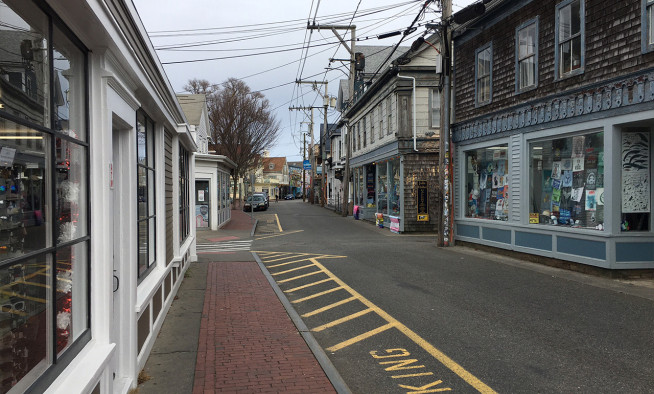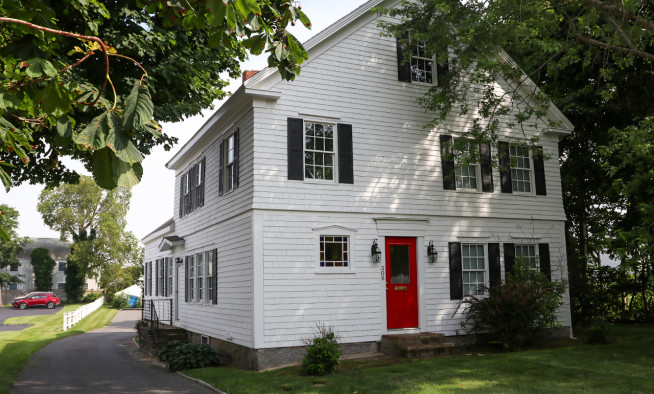OneCape 2022: Housing solutions and strategies from local, regional, and national experts

Housing is a critical issue facing Cape Cod. Over the course of the OneCape Summit, we heard about existing collaborations and new strategies for addressing our housing crisis.
Massachusetts Secretary of Housing and Economic Development Mike Kenneally provided perspective on the Commonwealth's housing priorities. Kenneally said that the housing crisis is generations in the making, and it will take time to solve. Currently, Massachusetts has the third-highest home values in the nation and the third-highest rents. One-quarter of the state's renters spend more than half of their income on housing costs. Kenneally outlined proposals to alleviate the housing crisis, including a plan to triple the Housing Development Initiative, enhance starter home zoning changes, and a $200 million investment in workforce housing.
Cape Cod Commission Deputy Director Erin Perry outlined the Regional Housing Strategy, that aims to address housing supply, affordability, and availability issues by identifying appropriate areas for housing development and creating policies and strategies to further the plan’s goals.
While Cape Cod is unique, the housing challenges we face are shared by many. Seasonal communities around the country are experiencing similar pressures, such as an increase in short-term rentals, a lack of workforce housing, and rising housing costs.
Tucked down in a mountainous valley surrounded on all four sides by US Forest Service property, the seasonal community of Vail, Colorado, is grappling with how to provide housing for year-round residents. Since 2010, nearly 90% of homes for sale in Vail were sold to seasonal residents and are unoccupied for at least part of the year. Vail Housing Director George Ruther joined us at OneCape to share strategies, including a plan to purchase or acquire deed restrictions on housing, to ensure Vail has permanent housing for locals living within the community,
Situated in the Sierra Nevada mountains, Lake Tahoe straddles the border of California and Nevada. It's a popular seasonal destination known for its beaches and ski resorts. The median home price in Tahoe has tripled in the past ten years, pushing home ownership out of reach for many of Lake Tahoe’s service-industry employed residents. Lake Tahoe Regional Planning Agency Deputy Director Julie Regan shared regional efforts to boost affordable housing production in walkable, bikeable areas and detailed how a stakeholder working group is examining current height, density, and land coverage restrictions. Placer County Associate Planner Devin McNally shared several strategies to protect and preserve affordable and attainable housing for the region's workforce, including a workforce housing preservation program, deed restrictions, and an accessory dwelling unit program.
Bringing the conversation back to Massachusetts, City of Boston Housing Innovation Design Fellow Wandy Pascoal shared strategies that promote a diverse and inclusive residential environment in Boston, including intergenerational home sharing, accessory dwelling units, and investigating ways to re-imagine Boston’s iconic triple-decker housing for the future.
Local experts shared successes on Cape Cod during a session on Community Supported Local Housing Action. This session featured Community Development Partnership President Jay Coburn, Eastham Director of Community Development Paul Lagg, and Provincetown Town Manager Alex Morse, each of whom spoke to recent local efforts to advance Town Meeting articles in support of housing development and affordability. The session provided examples on how municipalities can utilize changes to their zoning and land acquisition to lay the groundwork for improved affordable and accessible housing.
Tackling our housing challenges requires a thorough understanding of the problem and information-based tools to support action. In the Regional Resources to Address our Housing Crisis session, a panel of experts discussed data, tools, and resources available to Cape Cod communities. Dr. Kerry Spitzer, Economic and Public Policy Research Manager at the UMass Donahue Institute, provided an overview of data describing our existing housing landscape and outlined the elements of the Cape Cod Regional Housing Needs Assessment being conducted in collaboration with the Commission to better understand housing supply and demand and the needs and challenges facing homeowners and renters in the region. Housing Assistance Corporation CEO Alisa Magnotta and Association to Preserve Cape Cod Executive Director Andrew Gottlieb detailed the Grow Smart Cape Cod mapping tool designed to help identify areas suitable for housing development and redevelopment. Community Development Partnership President Jay Coburn shared resources for developing accessory dwelling units in the region.




